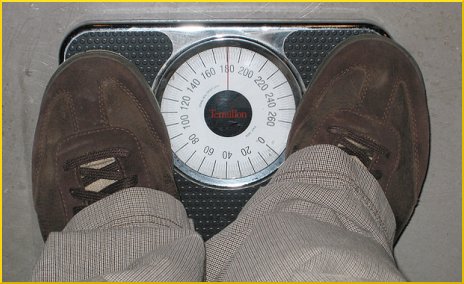
Today, Childhood Obesity News recalls Dr. Pretlow’s January 2 post, “Obese Youth and Motivation,” which was written once the Australian study related to the W8Loss2Go smartphone app had been concluded. It was difficult for his team to understand why some of the participants resisted using the app, based on several factors. First, according to the pre-study motivation questionnaire, they were not happy with the quality of life they were experiencing as overweight or obese young people.
Second, the participants discovered that W8Loss2Go is a new approach with several interesting features that don’t just duplicate the same old “eat less and exercise more” advice they had been hearing all their lives. Adults tend to expect more elasticity in the young. Kids are closer to the beginning of life than to the end, and have not spent decades letting bad habits become ingrained. It seems that the young should not be so set in their ways and should be more open to change — not just open to it, but embracing it.
Sadly, many times this does not turn out to be the case. In fact, as Dr. Pretlow noted, “Several youth in our studies reported that they have been overweight so long that they are accustomed to it.” This attitude goes against everything that adults fondly believe about the young.
Giving up
Dr. Pretlow also wrote, “They are fatalistic that they will always be that way and don’t know how to change.” But kids — we are showing you how to change! Open your eyes! As the venerable advice columnist Ann Landers so often exhorted her readers, “Wake up and smell the coffee!” An adult has an almost irresistible urge to say to the participants, “Hey, live up to your reputation and grab onto this new thing with both hands!” Yet in both W8Loss2Go studies, there was resistance.
When queried about his reluctance, a 17-year-old participant who weighed nearly 300 pounds indicated that he did not intend to worry about weight-related health issues until he was older. He produced the startling reply that his apathy in the face of obesity was a “teenager thing.” But since when do teenagers not care about looking good and being attractive?
A 400-pound 21-year-old told the researchers that he hadn’t previously cared, during his teen years, but eventually stumbled upon the very real possibility that his obesity could be fatal and decided that wasn’t how he wanted to die.
Deeper levels
Are the young people who say they don’t care just confused, deluded, or concealing some deeper issue? This is where things get tricky. As readers of Childhood Obesity News have learned, sometimes a history of abuse causes a young person to deliberately become obese in order to deflect unwanted and unwelcome sexual attention, and this can be true of both girls and boys. A child might feel that layers of fat provide a layer of cushioned armor that can protect her or him from the world’s perils. A youth who was bullied in younger years might grow to massive size to intimidate bullies by his sheer bulk. A youth who does not ever want to be inducted into the military might, consciously or subconsciously, decide to become obese to avoid that fate. When psychological depths are plumbed, anything might happen.
As we learned from Underground Wellness founder Sean Croxton, the interior climate is all-important. Sometimes when clients fail to make progress, he tries to get them to dig deeper:
I find that their why is not big enough, it’s superficial, doesn’t have anything to do with anything…. It’s just not big enough, so I spend a lot of time helping clients to find their why, I spend a little time as well helping people to find their values, what do they value in life.
Croxton works with adults to identify their core values and then shows them how excellent health aligns with these goals. There is no reason why the same techniques can’t be effective with kids and teens. Croxton explains why this is worth looking into:
Mindset is huge. If your mind is not right, then you should probably get it right or go get yourself a new goal…. If your mindset isn’t right, good luck, buddy. You know this is really not going to work.
Your responses and feedback are welcome!
Source: “The Dark Side of Fat Loss with Sean Croxton,” BulletproofExec.com
Image by niceness

 FAQs and Media Requests:
FAQs and Media Requests: 











